Ph.D. in Environmental Science: Large River Ecosystems
In Fall 2014, WIU began offering a Ph.D. in Environmental Science: Large River Ecosystems. This multidisciplinary effort is intended to accommodate student-scientists from a variety of physical, life, and/or mathematical science disciplines. Students in the Program now have the opportunity to study and conduct research in new facilities located on the Mississippi River basin.
![]() Prospective Ph.D. students - Learn more about our program.
Prospective Ph.D. students - Learn more about our program.
Introduction
The Ph.D. in Environmental Science: Large River Ecosystems is a multidisciplinary effort that is intended to accommodate student-scientists from a variety of physical, life, and/or mathematical science disciplines.
The objectives of the program are to:
- train scholars who create new knowledge based on fundamental research.
- produce graduates who are critical thinkers with the skills necessary to develop and manage complex solutions to open-ended challenges.
- mentor students to become recognized for their distinctive academic training and sought after for positions of responsible charge in academic, government, or private sector employment.
Admission Requirements
General requirements for admission to the Ph.D. in Environmental Science: Large River Ecosystems include the following:
- An earned thesis-based Master’s degree in a physical, life, or mathematical science from an accredited institution*
- An official application to the School of Graduate Studies
- Graduate Record Exam (GRE®) General Test
- Test of English as a Foreign Language (TOEFL®) if required by WIU’s Center for International Studies
- Three letters of reference
- Statement of research interest
- A curriculum vitae
*Applications will be accepted from students who are in the final stages of completing a Master’s degree. However, no one will be admitted to the program until he/she completes his/her Master’s degree.
Applicants who are otherwise qualified but would benefit by taking a course (or courses) prior to enrollment as a regular student in the program may be offered probationary admission. Conditions needed to satisfy full admission to the program will be specified and monitored by the Program Director. Students admitted on probationary status will receive a letter from the Program Director detailing requirements which must be satisfied before full admission can be granted. Probationary students must maintain a 3.25 cumulative GPA in those courses taken to meet academic deficiencies.
Program Description
Students must complete at least 60 semester hours (s.h.) beyond the Master’s degree in the following areas:
- Core courses, 14 s.h.
- Electives, at least 16 s.h.
- Dissertation/Research, 30 s.h.
Students must maintain a 3.25 cumulative GPA, calculated at the end of each regular academic semester (Fall & Spring). Any student with a cumulative GPA less than 3.25 will be notified in writing by the Program Director and given one regular academic semester to meet this requirement.

Core Courses
Students must complete the following core courses (14 s.h.):
- ENVR 730. Environmental Systems. (4) Through a systems approach, this course examines the outcome of physical and biological component modifications on system function. It provides the background to relate diverse and disparate facts and phenomena to one another in a dynamic environment. Lecture. Prerequisite: Graduate standing in the Ph.D. program in Environmental Science.
- ENVR 740. Advanced Analytic Tools in Environmental Science. (4) Development and use of advanced methods for the collection and analysis of environmental science data including statistics, mathematical modeling, molecular techniques, and geospatial analysis and simulation. Lecture and laboratory. Prerequisite: Graduate standing in the Ph.D. program in Environmental Science; ENVR 730.
- ENVR 750. Integrated Environmental Decision Making. (3) The linkage between scientific data, the needs of environmental managers, environmental use by the public and private agencies, and the development of management plans or environmental impact statements in the creation of high-quality decisions for use of the environment at the local, regional, national and global scale are examined. Lecture. Prerequisite: Graduate standing in the Ph.D. program in Environmental Science; ENVR 730 & 740.
- ENVR 799. Dissertation. (3) Preparation of a dissertation under the direction of the Chair of the student’s doctoral examining committee. Prerequisite: Graduate standing in the Ph.D. program in Environmental Science.
Dissertation Research
Students must complete 30 s.h. of dissertation research and will register for ENVR 798.
- ENVR 798 Dissertation Research. (0–10, repeatable) Research related to a dissertation topic of relevance to environmental science under the supervision of the Chair of the student’s doctoral examining committee. Prerequisite: Graduate standing in the Ph.D. program in Environmental Science.
Elective Courses
All students will take a minimum of 16 s.h. of elective courses. The selection of elective courses will be made by the student in consultation with his/her major advisor. In particular, elective courses will be selected based on the academic background of each student and the needs presented by his/her area of research. Elective courses must be taken at the 500, 600, or 700 levels.
Courses taken by students to meet deficiency requirements cannot be used to meet the elective course requirement.

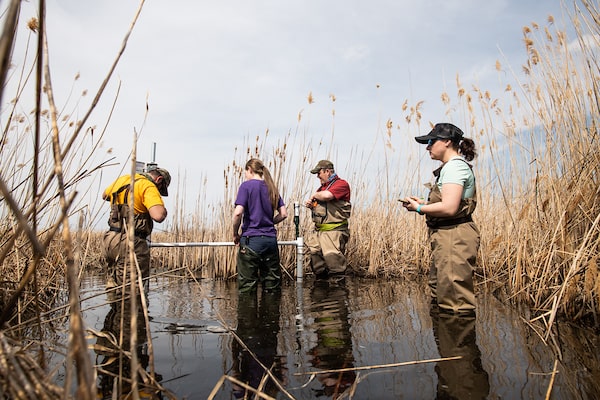
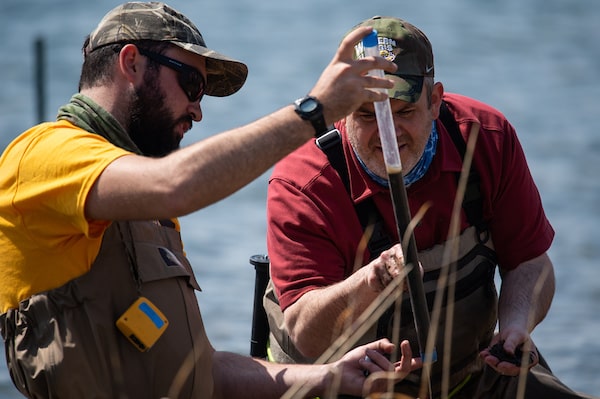
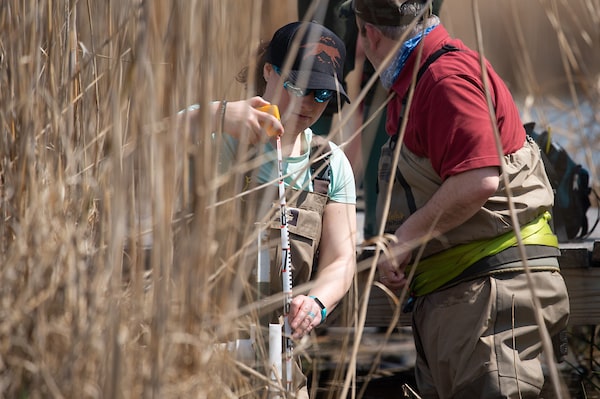
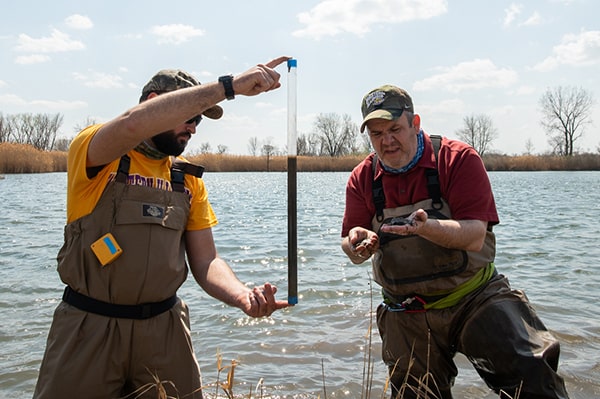
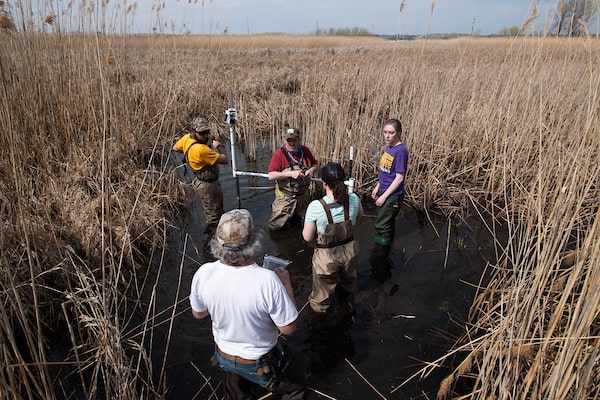
Connect with WIU: